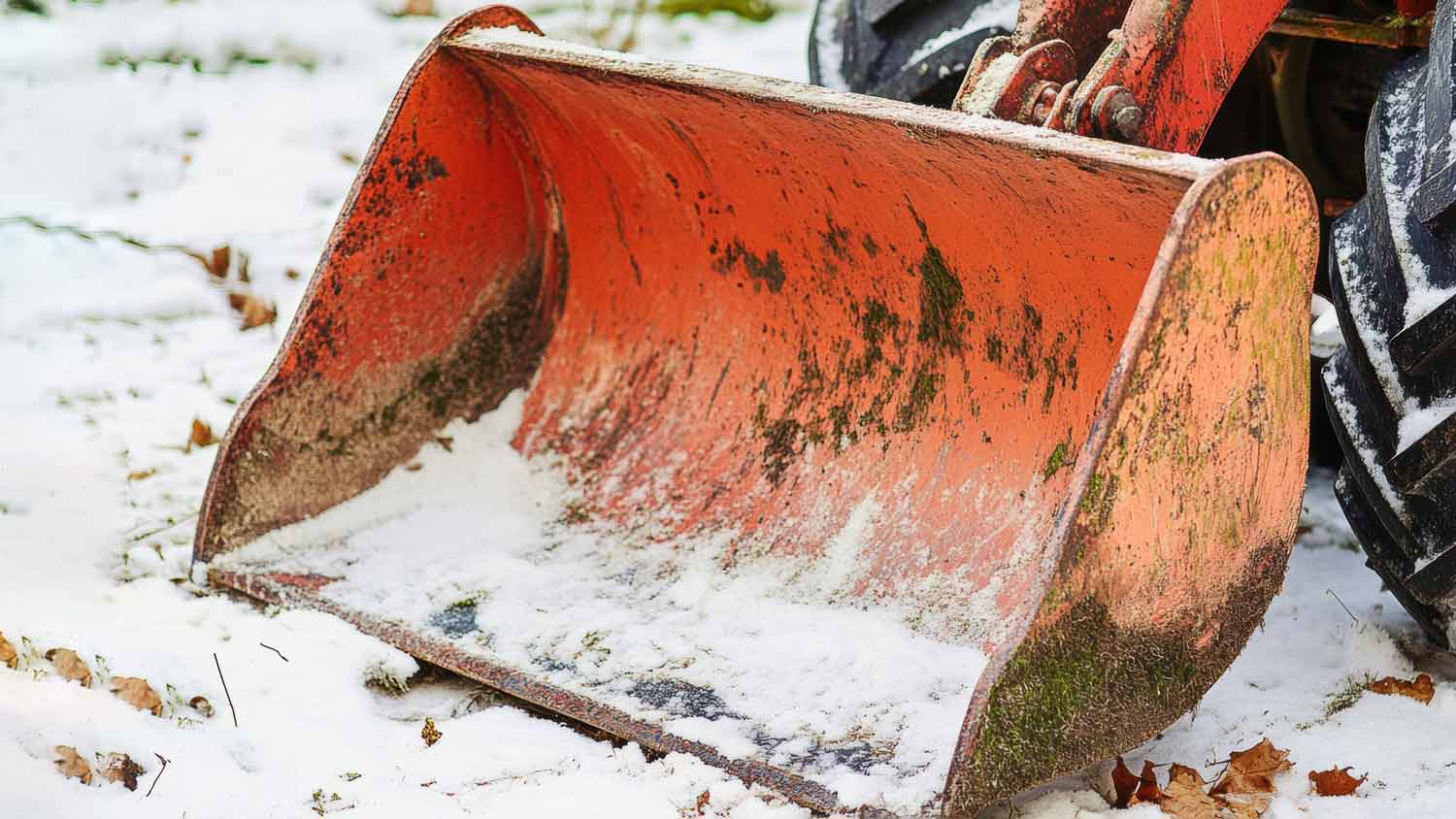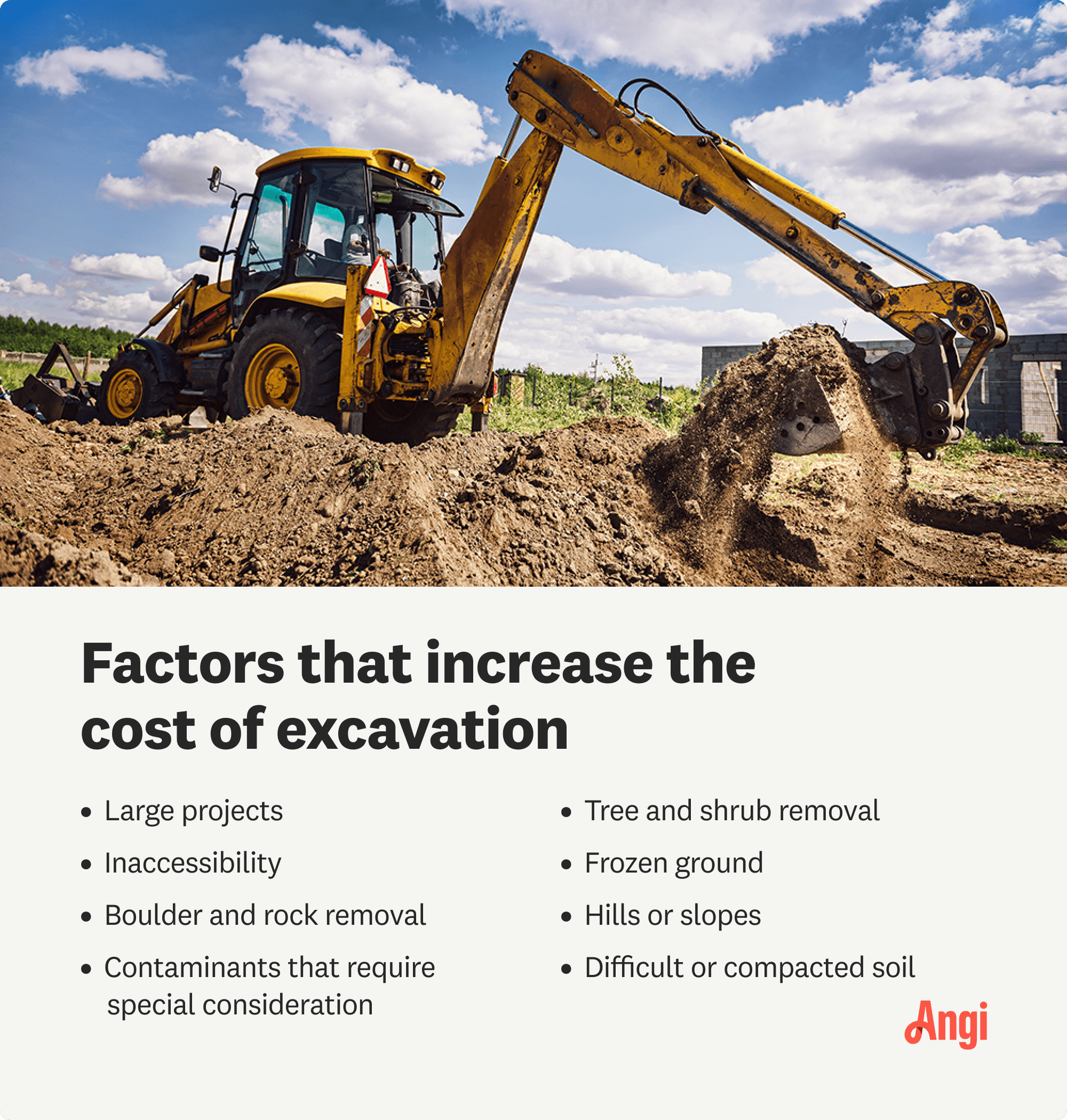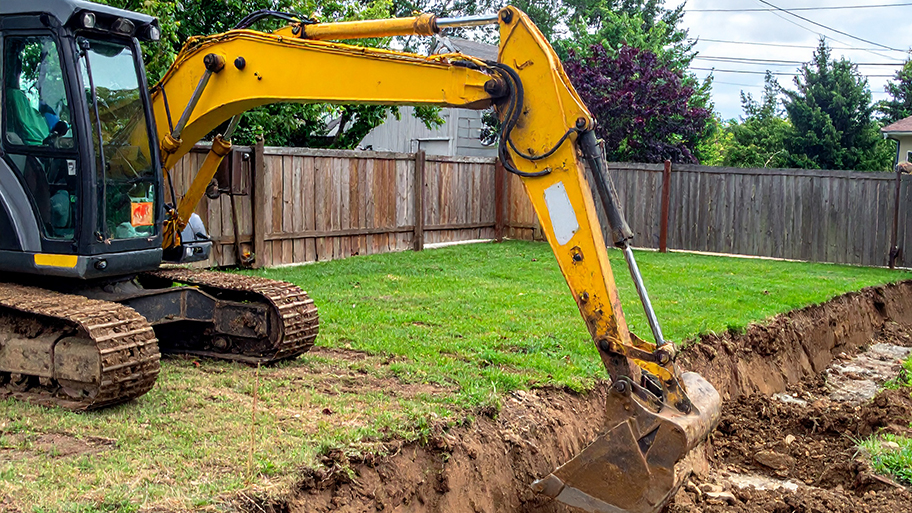
If you need to dig a trench, you might be tempted to do it yourself instead of hiring a pro. So, how much does it cost to rent a trencher? Let’s break it down.
Just because you can doesn’t always mean you should


It’s possible to excavate in winter, but it may cost more or take longer to complete.
The batteries in excavation machinery can lose 20% or more power at temperatures below 32 degrees Fahrenheit.
Excavation costs $1,600 to $6,700 on average, but costs can be higher in winter.
With cooler temperatures approaching, you may have had a groundbreaking idea to save money on your grading project: excavating in the winter. But can you actually excavate in winter? You can, but not without some complications and extra fees. Here’s what you need to know about winter excavations.
Yes, you can excavate in the winter and grade a lawn in the winter. However, excavating in winter is more feasible than grading a lawn in winter. Excavating is the process of completely digging up the ground, and grading refers to removing or adding soil to even out the lawn. Because of the changing moisture levels of soil in winter, it may be best to wait for milder weather to level the lawn.
There are pros and cons to scheduling an excavation project in winter. For instance, you might get off-season discounts from an excavation company when business is slow in colder months. However, winter excavations can be more difficult, which may lead to higher costs.
If the winter weather is mild, you may get a discount and have your project completed quickly if the excavation pros don’t have many other projects scheduled. If it’s a snowy or rainy winter or freezing temperatures are sticking around, though, there could be more problems that pop up and delay your excavation project.

Before you get that excavation project on the books, consider how these factors could impact the project timeline and cost.
When the weather outside is frightful, the ground may be frozen and difficult to actually dig up. Even heavy machinery struggles to break ground when the soil has frozen solid. Pros need to use specialized equipment, like static rippers, to pierce and loosen frozen soil. Exceptionally frosty conditions call for a supervised fire or hydrovacing, which is spraying the ground with high-pressure warm water.
If winter has left your yard with a lot of rain this season, the soil could be too moist to drive the machinery. Another problem with soil moisture is when it continuously freezes and thaws, which can cause frost heaves that create unstable or uneven ground.
If a heavy snowfall blanketed your yard the night before the excavation, the pros will need to spend more time removing the snow before they can continue working on the project. You’ll need to spend more money to compensate for their time.
Just like you can feel sluggish on a cold day in winter, heavy machinery can also have a harder time getting up and running when temperatures are freezing. Vehicle batteries can lose around 20% of their power at 32 degrees Fahrenheit, and they can lose more power as temperatures decline. Freezing temperatures can also lead to thicker vehicle fuel, meaning the pros may need to spend more time repairing faulty equipment when excavating in the winter.
Many people dread the early sunsets of winter, and this phenomenon can also lead to less work time for an excavation team. Your project could take more days to complete with the limited daylight hours, or the crew may need to bring in additional lighting equipment to continue working safely.
Freezing temperatures, icy walkways, and poor visibility from less daylight and snowy or rainy conditions all create a work zone that is more challenging to navigate, even for the pros. An excavation company will need to take extra precautions to keep workers safe, and this may lead to a longer project time and a higher cost for your excavation project.
The pros have the proper training and equipment to excavate any time of year, but late fall or early summer are the best times to schedule an excavation project. During these times, the weather is not yet too cold or too hot to get the work completed. It’s also not too rainy, which can make the soil too moist.
When weather conditions are optimal, excavation companies have busier schedules, so call to set up your project well in advance to secure your spot.

Excavation costs an average of $1,600 to $6,700, depending on several factors, including the time of year. Larger, more complicated projects (like those in wintry or rainy conditions) are more costly. If you can wait until spring on your digging project, whether that’s digging out a basement or grading the lawn, it may be worth it to excavate after winter is over.
Land excavations and any other type of demolition work should always be handled by a professional. Local building codes require licensed, insured contractors to perform these projects because they involve handling heavy machinery and digging into the ground, which must be done with care to avoid utility lines.
“Logistics and timing are two things that come with the price when you hire professionals to do this kind of work for you, and with that comes the security that if anything goes wrong, they will be on the line for it and not you.”
— Josh Rudin, Owner of ASAP Restoration LLC, Tempe, Arizona
Whether you’re planning to excavate on a hot day or on a frosty afternoon, it’s best to leave this job to a local excavation company. The pros will work quickly and safely to finish the excavation, even in inclement weather.
From average costs to expert advice, get all the answers you need to get your job done.

If you need to dig a trench, you might be tempted to do it yourself instead of hiring a pro. So, how much does it cost to rent a trencher? Let’s break it down.

Digging a trench is usually the first step in a larger home project. Our trenching cost calculator breaks down the factors that affect the price tag of this job.

Preparing for a big excavation project in your yard? Find out excavator rental prices by type, project size, and more to budget for your project.

When planning to trench, you may be concerned about rocky ground. Can a trencher go through rock? Find out what your trencher can cut through in this guide.

If you want to hire someone to dig a trench, choose a local excavation company. Learn why you should hire a pro for your trench and what it will cost.

Who can dig a trench for you? You can rent trenching equipment for a simple job, but a local excavation company can help with tough ones. Here's how.